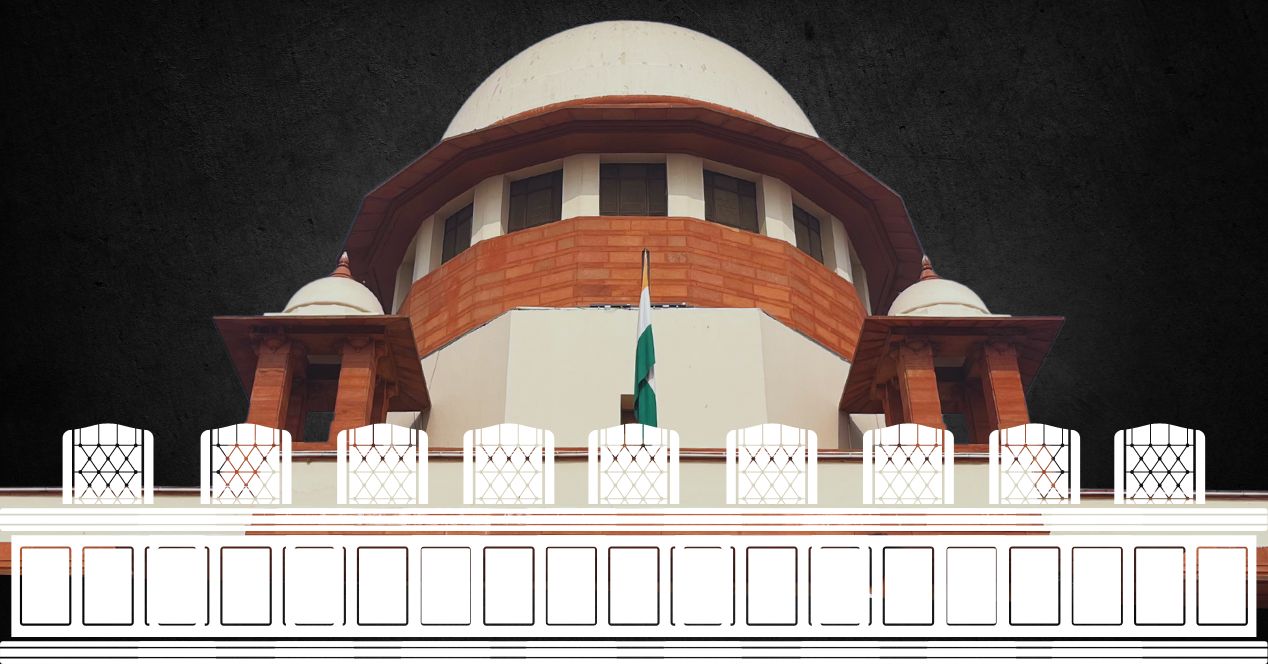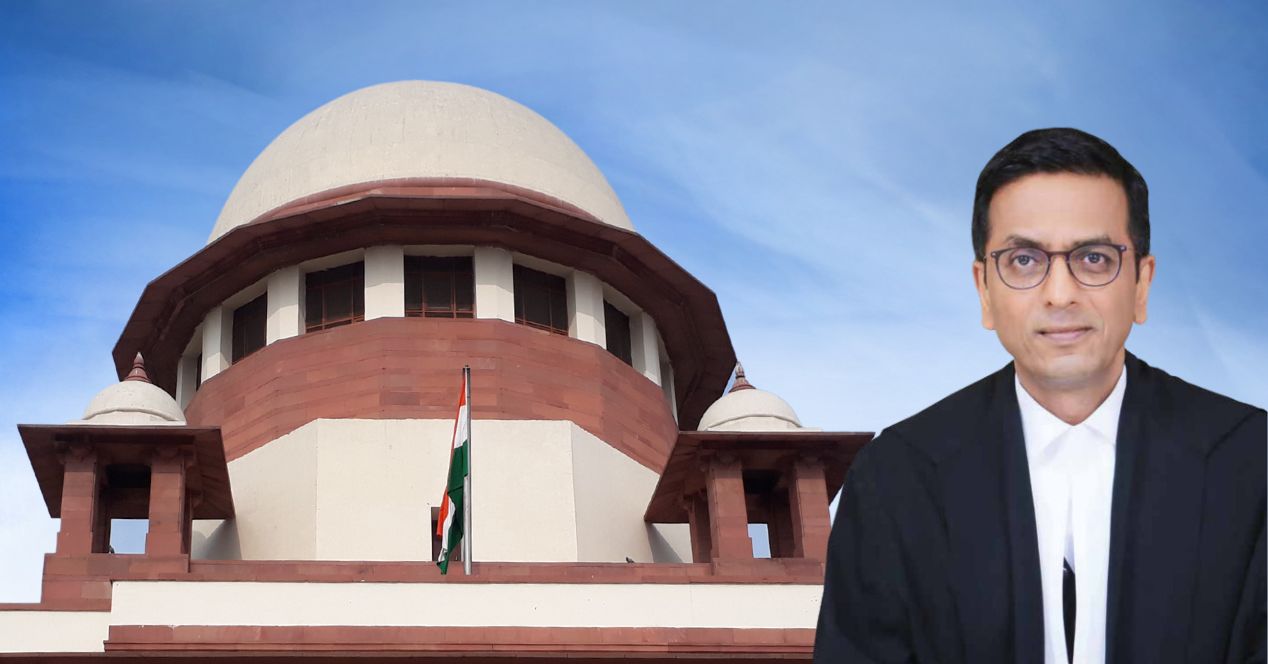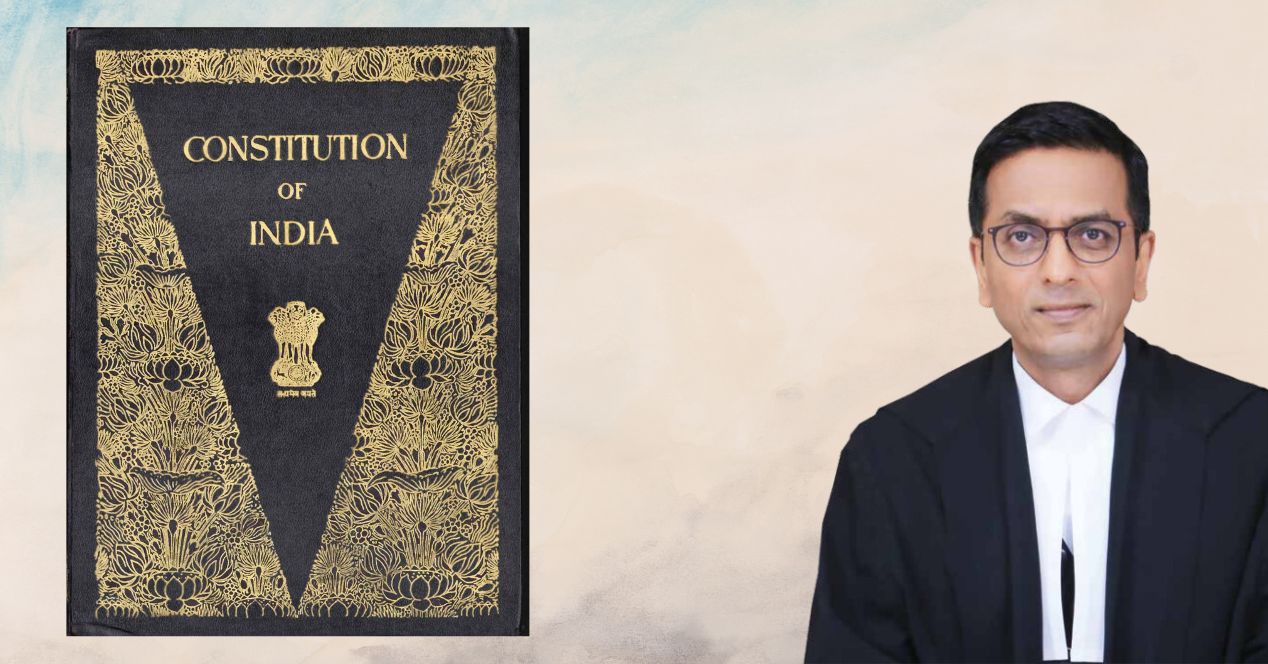Channel
Upcoming Constitution Bench decisions in 2024
Before the Chief retires, Constitution Benches led by him must deliver verdicts in cases about, reservation, tax, minority status and more
Transcript:
Spandana: Hello everyone and welcome to SCO’s channel! I’m Sai Spandana.
Advay: And I’m Advay Vora and today, we are here to talk about the important constitution bench decisions that are bound to be delivered this year.
Spandana: When it comes to Constitution Bench activity, the first half of the year was action-packed in the Supreme Court. Out of the 88 working days between January and June, long-pending Constitution Bench cases were heard by seven and nine-judge benches on 30 days.
All these benches were led by Chief Justice D.Y. Chandrachud, who is retiring in November this year. So it is safe to assume that the judgement in these cases—many of which have a muddled history spanning decades—will be pronounced in the coming months.
Advay: The judgements in these cases could have wide ramifications on centre-state relations, citizenship rights and the affirmative action discourse in India. While we will not delve into the detailed legal histories of these cases—for this please visit our cases page, here, we describe what these cases are about and what is at stake in these matters. So, let’s dive right in!
Can the rules for public appointments be altered once the recruitment process has begun?
Spandana: Imagine this: After teams have announced their squads for the T20 World Cup, the International Cricket Council imposes a condition that only players who have played 50 matches can participate.
Sounds absurd, right? But something similar occurred in the Rajasthan High Court in 2013 while filling vacancies for the posts of translators. The candidates who had already given a written examination and a viva-voce were informed that only candidates who’d scored at least 75 percent in their examination would qualify for appointment.
The aggrieved candidates inevitably challenged what they considered a post-facto change in recruitment rules. They alleged that “changing the rules of the game” after play had commenced was violative of Article 14.
The Rajasthan High Court defended its action on the ground they were required to maintain a high standard for selecting candidates. The matter reached the Supreme Court and is currently awaiting a decision by a five-judge Constitution Bench.
The bench led by CJI Chandrachud reserved the judgement on 18 July 2023. The Court’s verdict will be crucial as lakhs of aspirants appear for public examinations to obtain government jobs.
Is Assam’s National Register of Citizens valid?
Advay: Section 6A of the Citizenship Act, 1955 was the culmination of decades of turbulent history in the state concerning immigration and citizenship. This provision grants citizenship to immigrants who entered Assam from Bangladesh before 24 March 1971.
The question in the case is whether Section 6A singles out Assam by providing a specific cut-off date for citizenship. The lead petitioner, All Assam Students Union argued that the provision has facilitated mass immigration from Bangladesh and deprived indigenous Assamese of job opportunities and resources. The Union, on its part, contended that Section 6A is valid as Article 11 of the Constitution of India allows Parliament to frame laws pertaining to citizenship. Advocate Shadan Farasat appearing for the Social Justice Forum also contended that “cultural exclusivity” was not a justification enough to strike down the provision.
A five-judge bench led by the Chief reserved judgement in the case on 12 December 2023. The Court’s decision will determine not only the status of immigrants in Assam but also the extent of Parliament’s power to make citizenship laws.
Does Aligarh Muslim University have a minority status?
Spandana: In 2024, the Court opened its constitution bench activity with a seven-judge bench case concerning Aligarh Muslim University.
Article 30 grants religious and linguistic minorities the right to “establish and administer” minority educational institutions. In 1967, a five-judge bench in S. Azeez Basha v Union of India held that AMU was not a minority institution as it was established by the British government under a central legislation—the Aligarh Muslim University Act, 1920.
On the other hand, AMU argued that the institution was ‘established’ by and for the Muslim community in colonial India and was ‘administered’ by Muslims since then. They claimed that the Muslim community contributed most of the funds to establish AMU. This fulfilled the criteria for it to be considered a minority institution under Article 30.
A seven-judge bench led by the Chief assembled on 10 January 2024 to reconsider Azeez Basha and reserved judgement in the case on 1 February after eight days of arguments.
The Court’s decision on the correctness of Azeez Basha will impact other minority institutions that operate under a Union statute.
Is a sub-caste a class within a caste?
Advay: Under the constitutional scheme, states are allowed to provide reservation in education and public employment to members of the Scheduled Caste (SC) category. The SCs are notified by the President under Article 341 of the Constitution. But can states create sub-classifications within this group and provide preferential reservation to certain castes within the SC category?
In February 2024, seven judges heard arguments for three days in this critical case. Surprisingly, the Union and several state governments which are usually at loggerheads with each other argued together to support sub-classification. They urged that sub-classification could help tackle the issue of “backwardness within backwardness.” The bench reserved judgement in the case on 9 February 2024.
Reservation has always been a social and political touchpoint in India, and the Court’s decision in this case will likely have implications on affirmative action schemes and discourse.
Who regulates industrial liquor?
Advay: This is yet another case concerning the division of powers between the Union and the states, and having financial implications. The Court is looking into whether states or the Union have the power to regulate industrial alcohol.
States have argued that the Constitution envisages a system where state governments have control over industries in their territories, unless the Union government explicitly claims control. The Union countered that they have claimed control through the Industries (Development and Regulation) Act, 1951. They also argued that the Constitution gave primary control over “intoxicating liquor” to states. The Union however, interprets states’ control over intoxicating liquor to only mean drinking liquor that has an intoxicating effect—not alcohol used in industries.
The bench reserved judgement in the case on 18 April 2024. For states this judgement is crucial as it impacts a significant source of revenue. They also argued that loss of control over industrial alcohol will take away their ability to regulate the illicit consumption of industrial alcohol. For the Union, this is a ‘big picture’ issue. They argue that control is crucial to implement nation-wide policies.
What is a ‘material resource of the community’?
Spandana: On the face of it, the challenge in this case concerns the interpretation of Article 39(b), a Directive Principle of State Policy. This DPSP enables the state to have “ownership and control of the material resources of the community” and distribute them to best “subserve the common good.” The challenge emerges from amendments to an act in Maharashtra which enabled a state-run housing body to acquire privately owned old, dilapidated buildings in Mumbai. The question before the Court is whether privately owned property can be a “material resource” of the community.
Scrape the surface a little, and another crucial constitutional question is at play—does Article 31C of the Constitution exist?
Article 31C was introduced through the 25th Constitution Amendment to save laws enacted to give effect to clauses (b) and (c) of Article 39 from being declared void for violating fundamental rights. A five-judge bench in 1980 had struck down an amendment which had expanded the scope of Article 31C and made it applicable to all DPSPs. The question remains whether the pre-amendment version remains in the books or is effaced from the Constitution.
If it is found that Article 31C is a dead letter, then the petitioners can challenge the legislation in question on the ground of a fundamental right violation.
The bench reserved its judgement in the case on 1 May 2024. The Court’s decision is expected to determine the consequences of a judicial striking down of an amendment and whether private property can be acquired under the aegis of Article 39(b).
Advay: That brings us to the end of our list. For more information about each of these cases and detailed hearing reports, matrices and summaries, dont forget to visit the cases page.
Spandana: We’ll be sure to track the judgements in each of these cases. So keep an eye on SCObserver.in for updates. Also don’t forget to follow us on facebook, twitter, instagram and linkedin for timely updates about important cases at the supreme court.
Advay: Thank you for watching!




